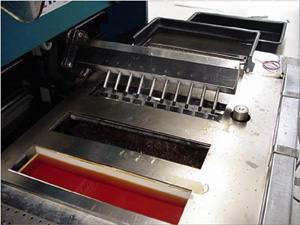News
As part of the nation’s effort to sustain the microelectronics manufacturing capability necessary for national and economic security, and in support of Executive Order 14017, America’s Supply Chains, the Department of Defense recently entered a $10 million agreement with Six Sigma utilizing Defense Production Act (DPA) Title III authorities.
SIX SIGMA is pleased to announce that it’s SolderQuik® column grid array technology has been used to ruggedize FPGA microcircuits on-board the Cibola Flight Experiment Satellite (CFEsat)
The semiconductor industry’s move to pure-tin finishes is creating a dilemma for the high-reliability community. Most military and aerospace companies forbid the use of pure-tin because of the risk of tin whiskers. To resolve this dilemma, hot solder dip is being implemented to convert components to alternative finishes. Read the PDF.
Traditional Ceramic Quad Flat Pack (CQFP) or Ceramic Pin Grid Array (CPGA) packages are no longer suitable for today’s high I/O count FPGA devices. Higher pin-count packages such as Ceramic Column Grid Array (CCGA) become necessary for packaging today’s high-density FPGA devices. CCGA represents a key leveraging technology that offers high density packaging for high…
Poster with photos and process flow of the BGA reballing process for military and aerospace applications.



